Discarded Plastic Is Harming the Planet — This Designer Is Taking the Matter Into His Own Hands
We sat down with London-based maker James Shaw as he unveils a new playful home collection for London's coolest concept store, KOIBIRD
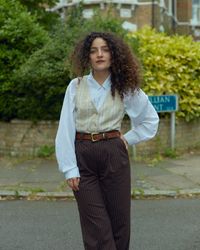
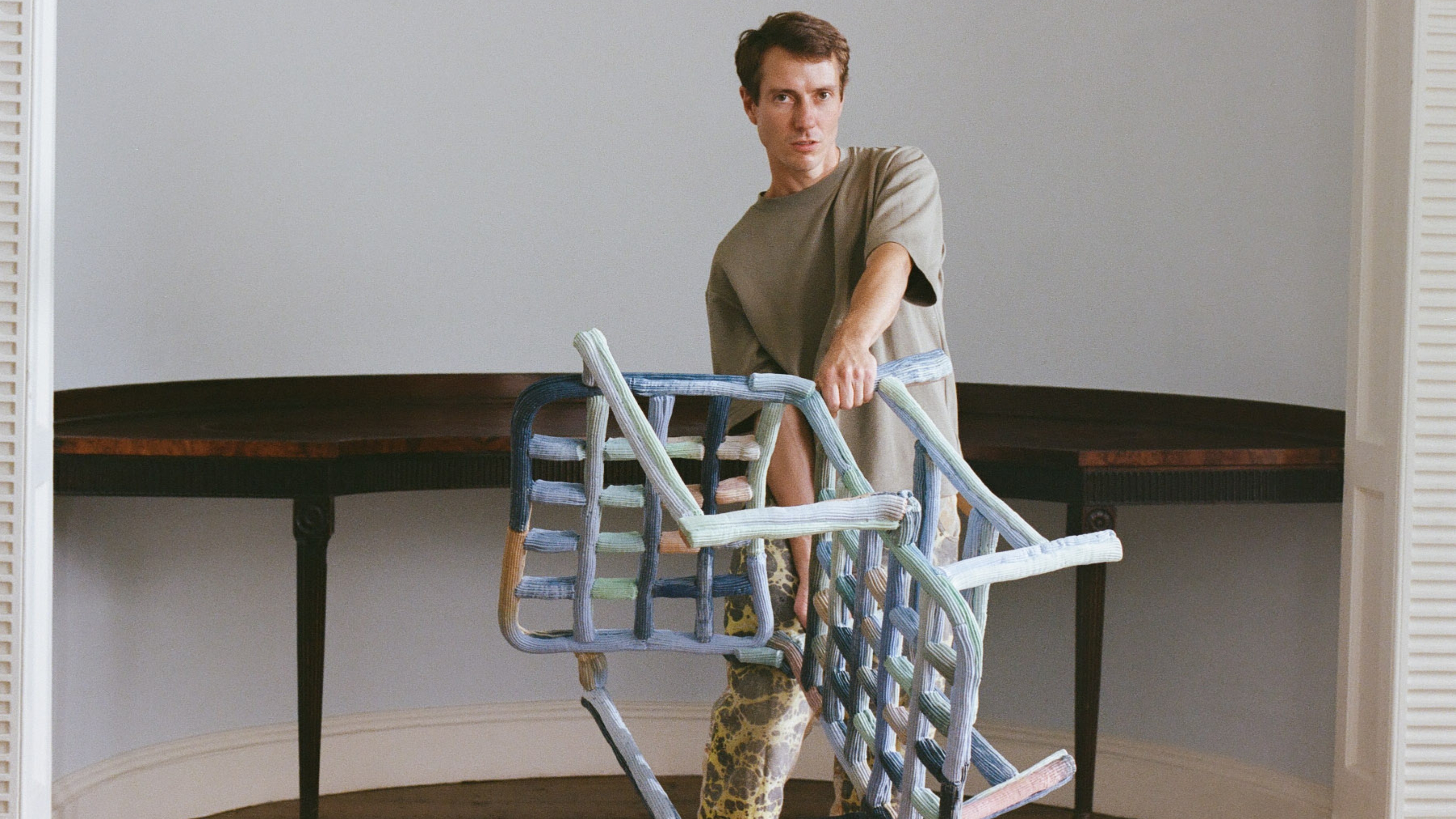
The Livingetc newsletters are your inside source for what’s shaping interiors now - and what’s next. Discover trend forecasts, smart style ideas, and curated shopping inspiration that brings design to life. Subscribe today and stay ahead of the curve.
You are now subscribed
Your newsletter sign-up was successful
When we stopped by KOIBIRD, the dreamy concept store at 62 Marylebone Lane, London, earlier this year, it truly felt like stepping into an alternate world. From today, gradient lilac, pink, and acid green walls, sheeny pois tiled floors, quirky curation of clothing, accessories, and collectibles, and Space Age-inspired decor won't be the only elements to allow the shop to absorb you in a dimension of its own.
In his just-released home collection for KOIBIRD, London-based emerging designer and maker James Shaw looks to redeem plastic, one of the most polluting materials of our century, reworking it into a series of functional objects, including a lamp, candlestick holders, a candelabra, two mirrors, a set of bookends, a planter, a pepper and salt grinder, and a kitchen roll holder, that's as colorful and quirky as it is amusing.
In doing so, the RCA Design Products graduate doesn't simply grant it a new life. He also finds his way of "unlocking a playful, voluptuous, and idiosyncratic side" to something that would otherwise have gone to waste, proving that even when we think things have lost their value and that it's time to move on, there may still be something they — we — can make (with them).
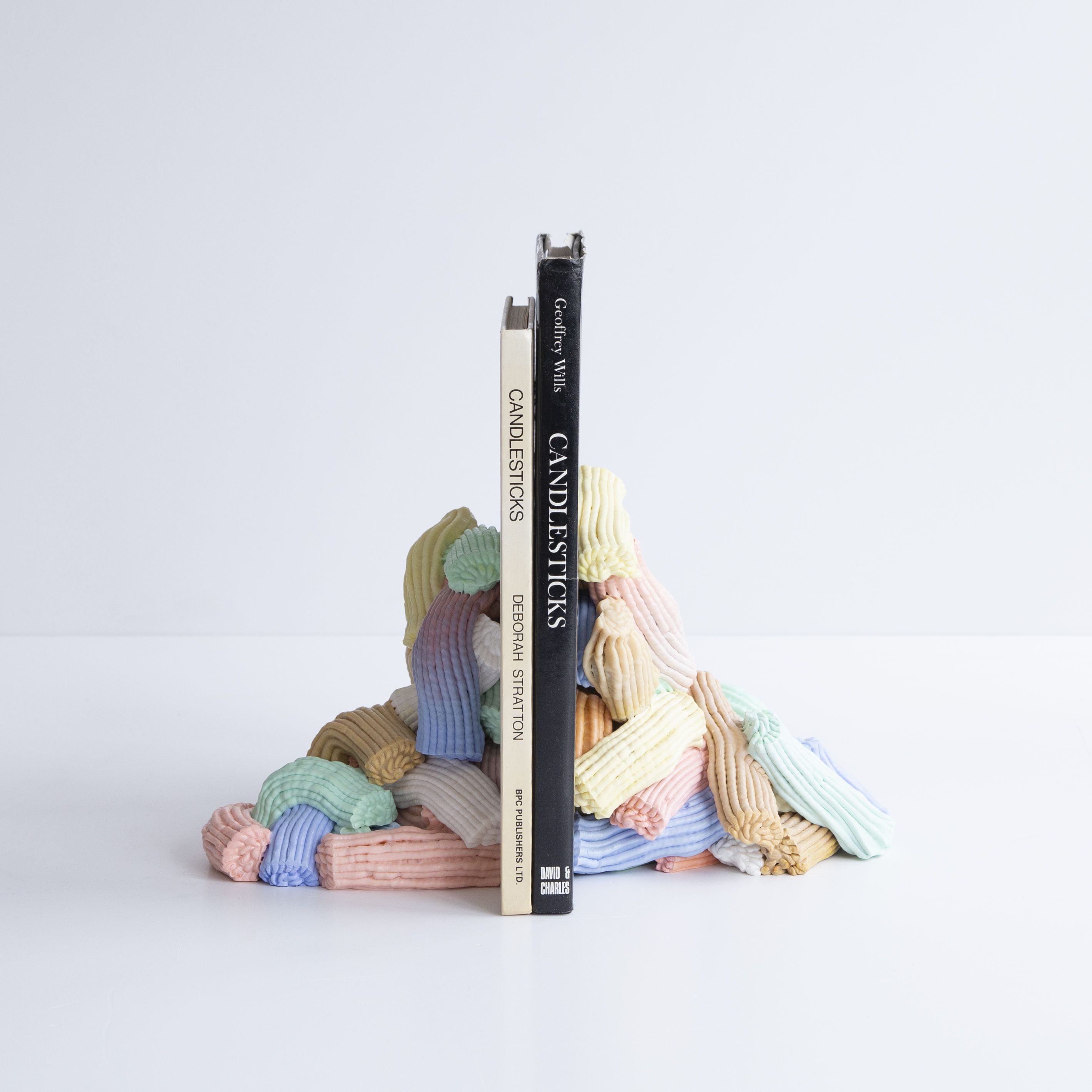
Plastic Baroque Bookends Multi, £250.
Image credit: Courtesy of James Shaw and KOIBIRD
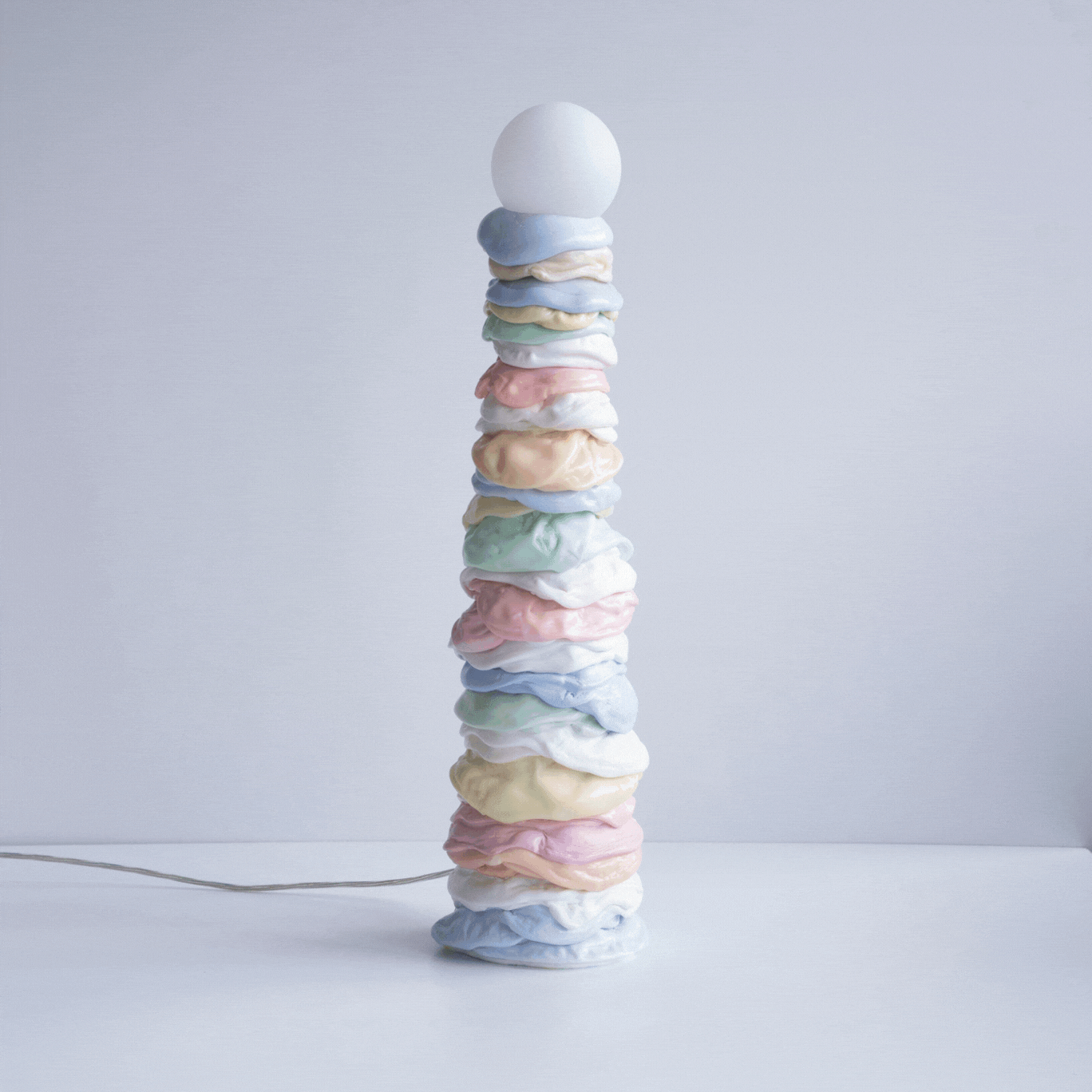
Tall Blob Lamp Multi, £1100.
Image credit: Courtesy of James Shaw and KOIBIRD
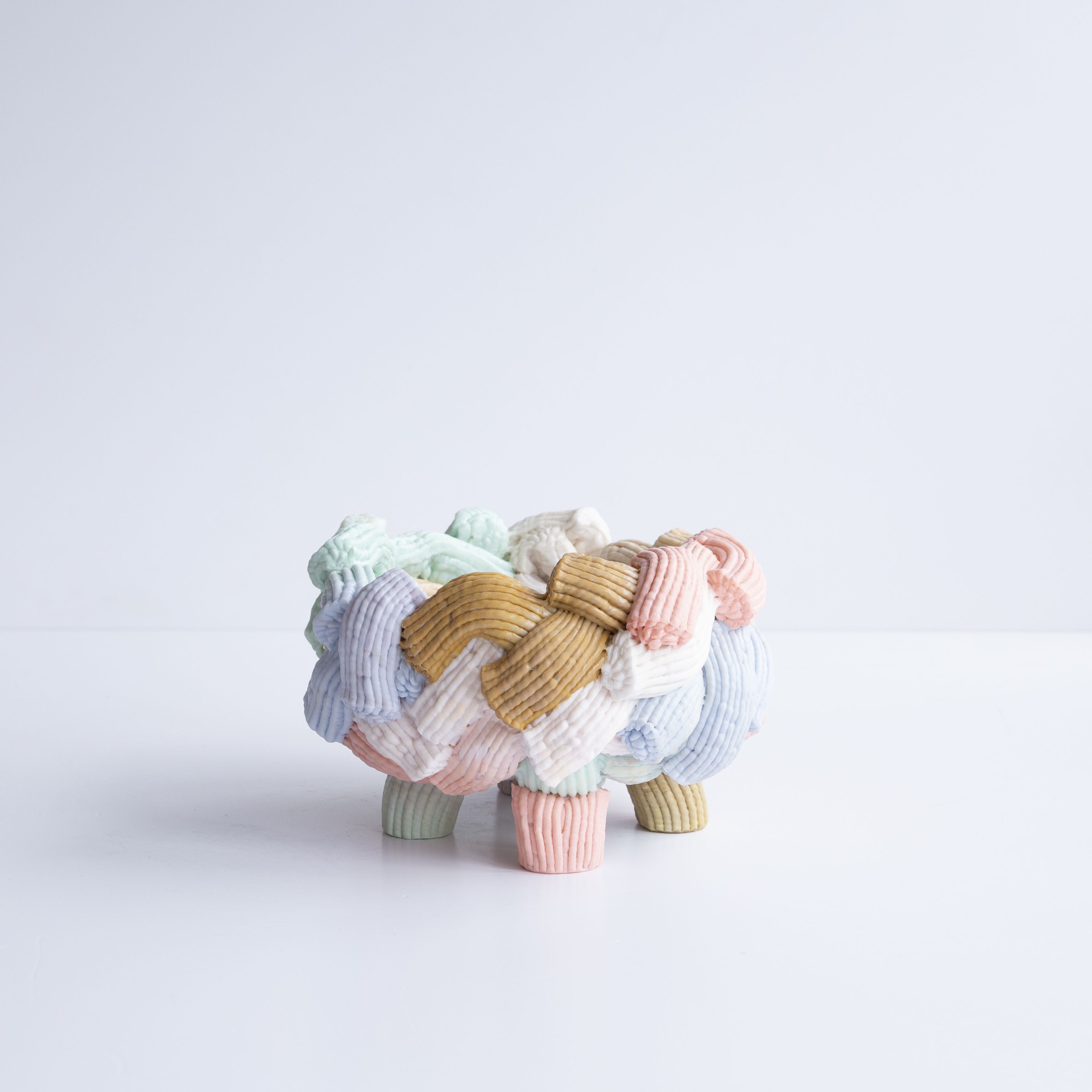
Small Plastic Baroque Planter Multi, £400.
Image credit: Courtesy of James Shaw and KOIBIRD
Known for his squishy, icing-like designs obtained from materials like walnut timber, polished aluminium, and mirror, and discarded goods like waste wood, bio-resin, denim, and corduroy, as well as for his textural experimentation with recycled papier-mache, pewter, and plastic, of course, Shaw has exhibited widely around the world.
Some of his pieces, including sustainably developed armchairs, creaturesque wooden furniture, and mysterious, melted sculptures, have taken over Sloane Square's The Conran Shop in The Blob Viewing Room, an installation that's just come to a close. While his work is stored in the permanent collections of MoMA, The V&A, The Montreal Museum of Art, The Design Museum Ghent, and The Museum of London, to name a few.
How did the designer get his first go at this? "I have always been interested in discarded materials," Shaw tells me, adding that his "first ever furniture collection was made by 'combing' the streets for broken and discarded furniture parts and then recombining them into new items."
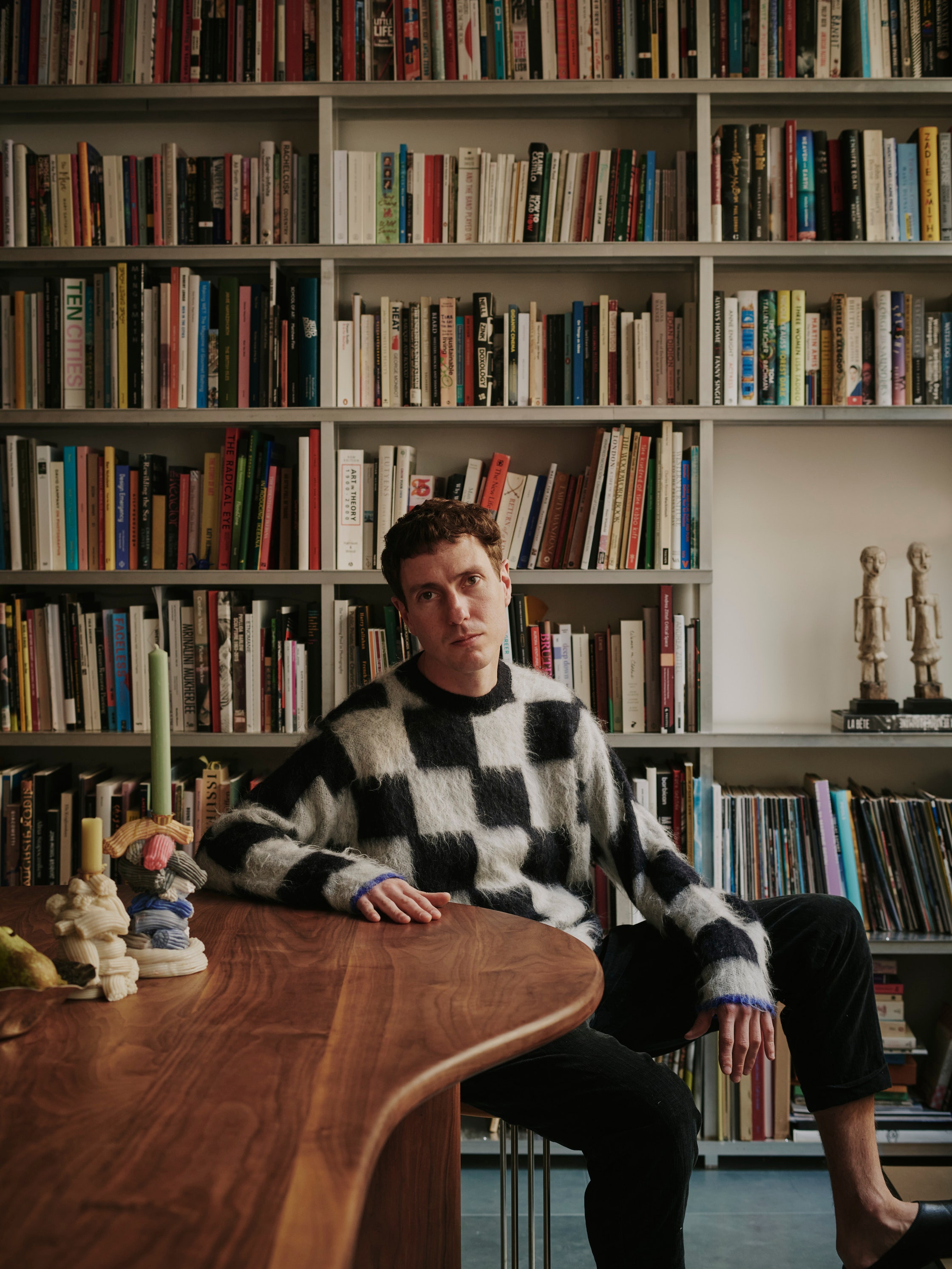
It was his graduation project from college that allowed him to start looking at things differently. For it, "I built a machine — an extruding 'gun' — and in the reverse order compared to how things normally work, I needed to find a material to put into it," he explains.
The Livingetc newsletters are your inside source for what’s shaping interiors now - and what’s next. Discover trend forecasts, smart style ideas, and curated shopping inspiration that brings design to life. Subscribe today and stay ahead of the curve.
Around the same time, Shaw had connected with a plastic recycling plant that, he recalls, had made him aware of "how much of this material is around and how badly it is normally treated." Visits to the site provided the ground for the shaping of the vision behind what he does.
"The primary intention behind this work is to create fun, desirable objects from a problematic material that people will use and keep for a long time," Shaw says of his core goal. "Plastic normally requires huge factories to process. What I bring is a more human approach where each object is hand-crafted and essentially unique."
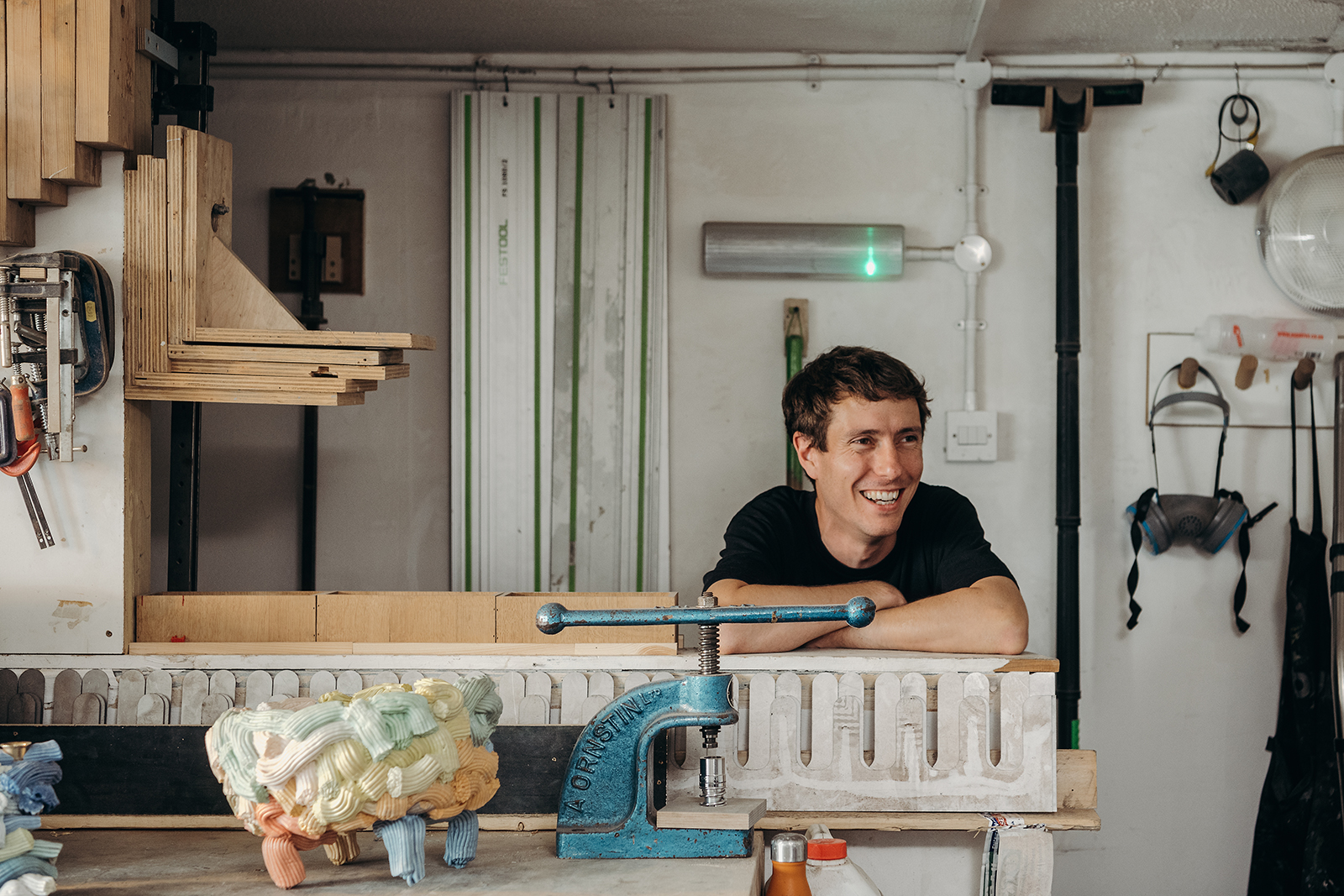
His collection for KOIBIRD, which launches today and will be available to purchase for a limited amount of time in store, is emblematic of that approach. To draw Shaw towards the London concept store after being introduced to it by Uchronia, the studio that designed it, was the sense of vibrancy, experimental understanding of craft, and continuous search for joy that he believes define its ambiance and curation.
The items he imagined for his collaboration with the shop, which KOIBIRD's chief product officer Shereen Basma describes as "unique" while simultaneously "retaining the DNA of the brand", particularly through their flashy colors and irreverent shapes, push the limits of artisanry by relocating plastic disassembling and reinvention from large-scale industrial sites to Shaw's own studio.
The result is a series of one-off collectibles that, infused with the nostalgia that stems from our memories of building with playdough, and categorically distinguished by their organic, generous forms, bring a sense of softness and comfort into the home.
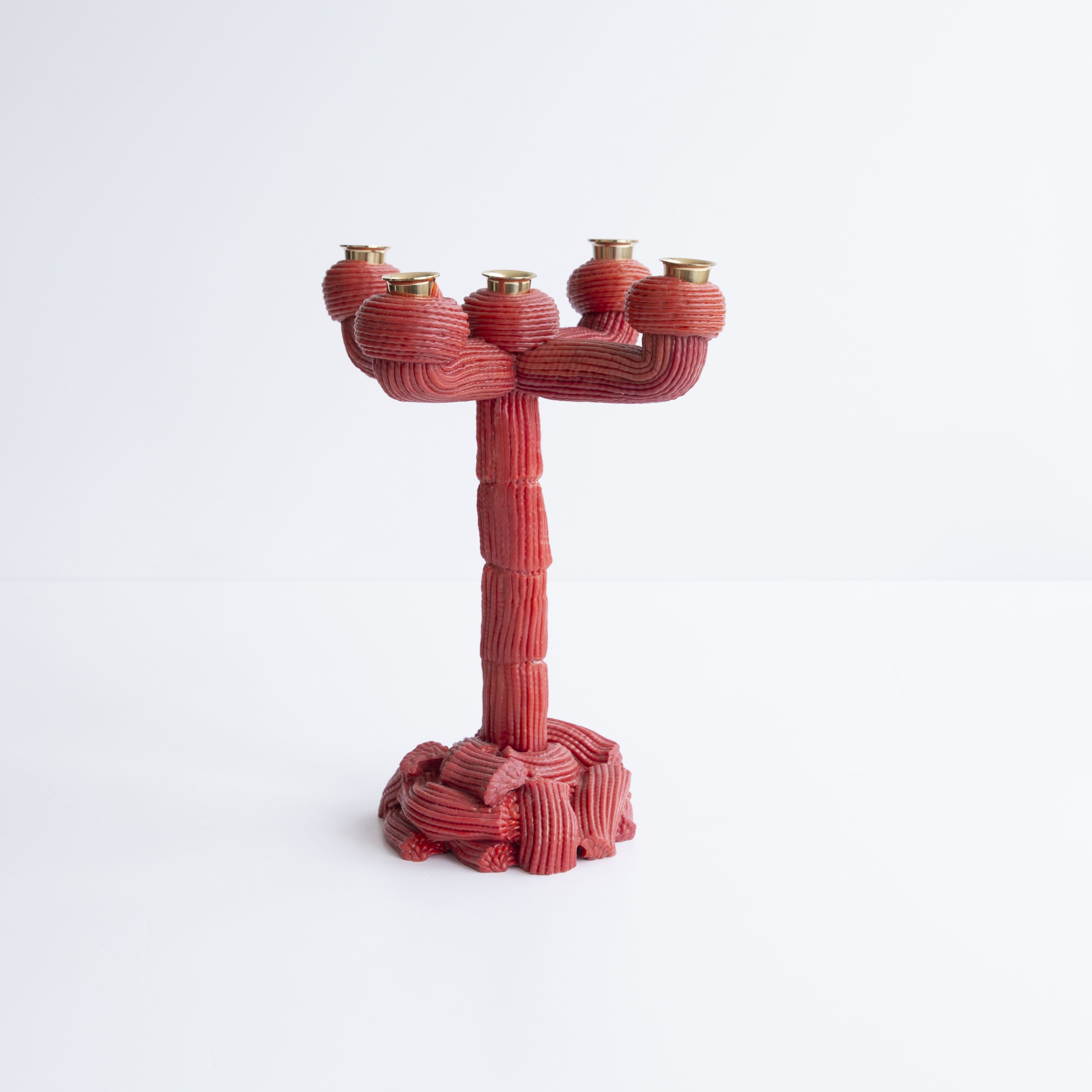
The festive season-ready Candelabra Red, £350.
Image credit: Courtesy of James Shaw and KOIBIRD
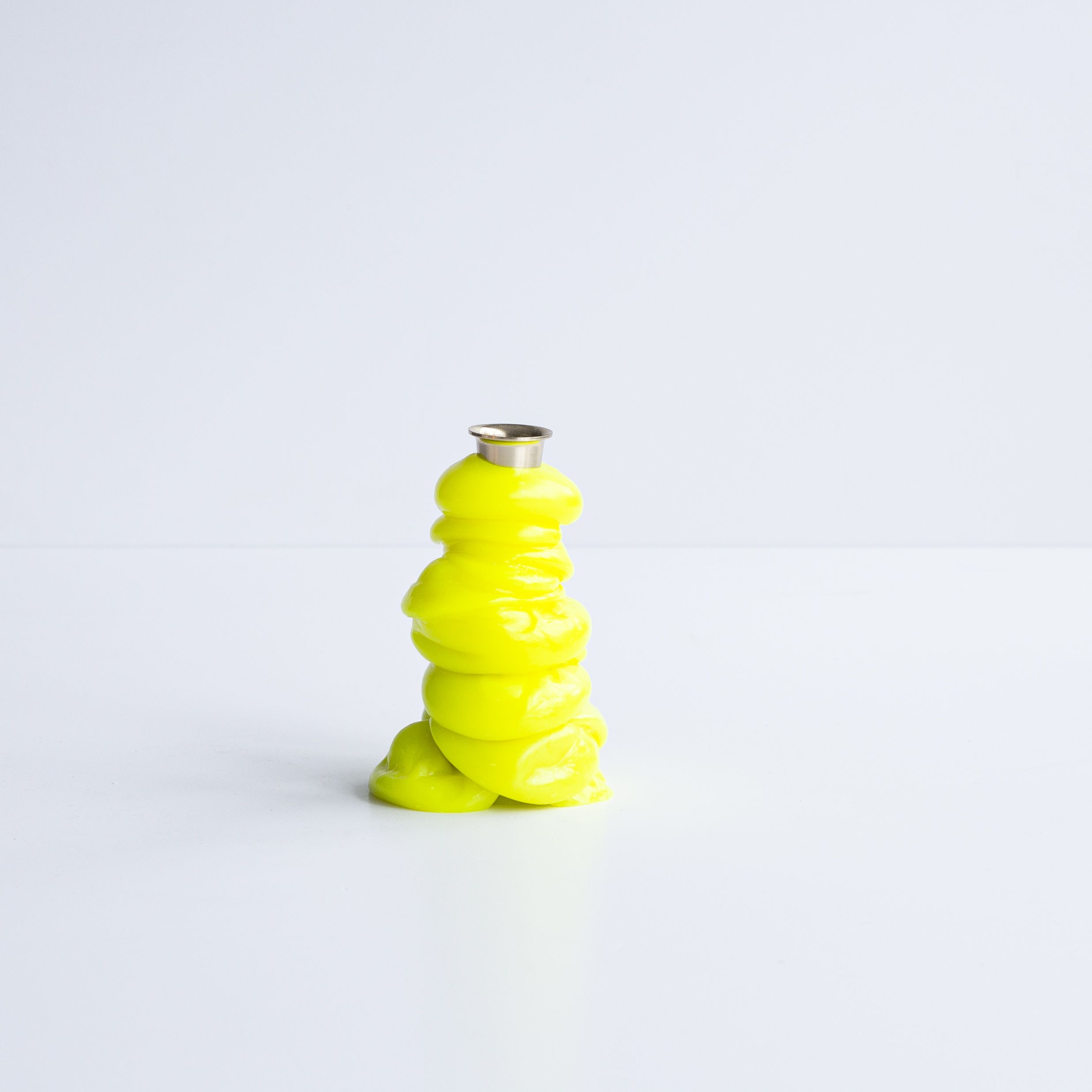
Blob Candlestick Yellow, £95.
Image credit: Courtesy of James Shaw and KOIBIRD
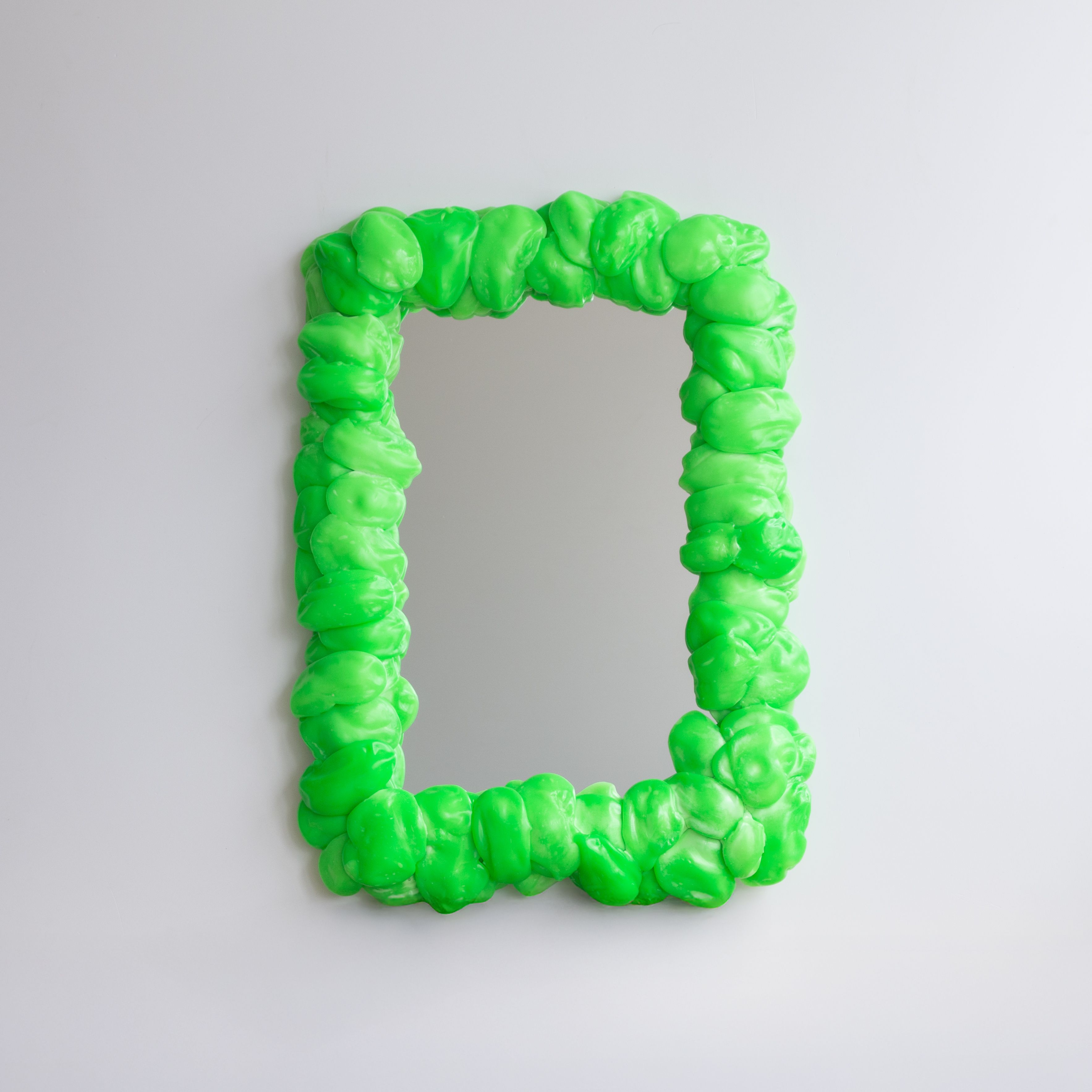
Blob Mirror Green, £900.
Image credit: Courtesy of James Shaw and KOIBIRD
"We pretty much do everything in-house in our workshop in London, which means that every element of the making has to be thought through because we are going to be doing it," the designer explains. "I am fascinated by making in all its declinations and materials, and each model from our KOIBIRD collection expresses how it was molded into shape, trying to marry this with how it will be used and how it looks."
But how does regenerating plastic, the main source behind this new line, actually work? "Several machines allow me to work with it, the main one being a self-built 'extruder' which melts the material down and squishes it out as a hot, malleable material which we then form by hand," Shaw says. "We also have a grinder, which means that we can take in things like milk bottles and then grind them back into a material which we can feed into the extruder, as well as grinding up and reusing any tests or prototypes that don't make the grade."
He makes it sound easy, but the designer admits that building the machine was a real trial-and-error process. "We are now on the fifth iteration, the first ones were really bootstrapped from things I had access to — using a drill as the motor, heaters borrowed from something else. For the current extruder, I worked with a few different engineers, and it's a thing of beauty in itself."
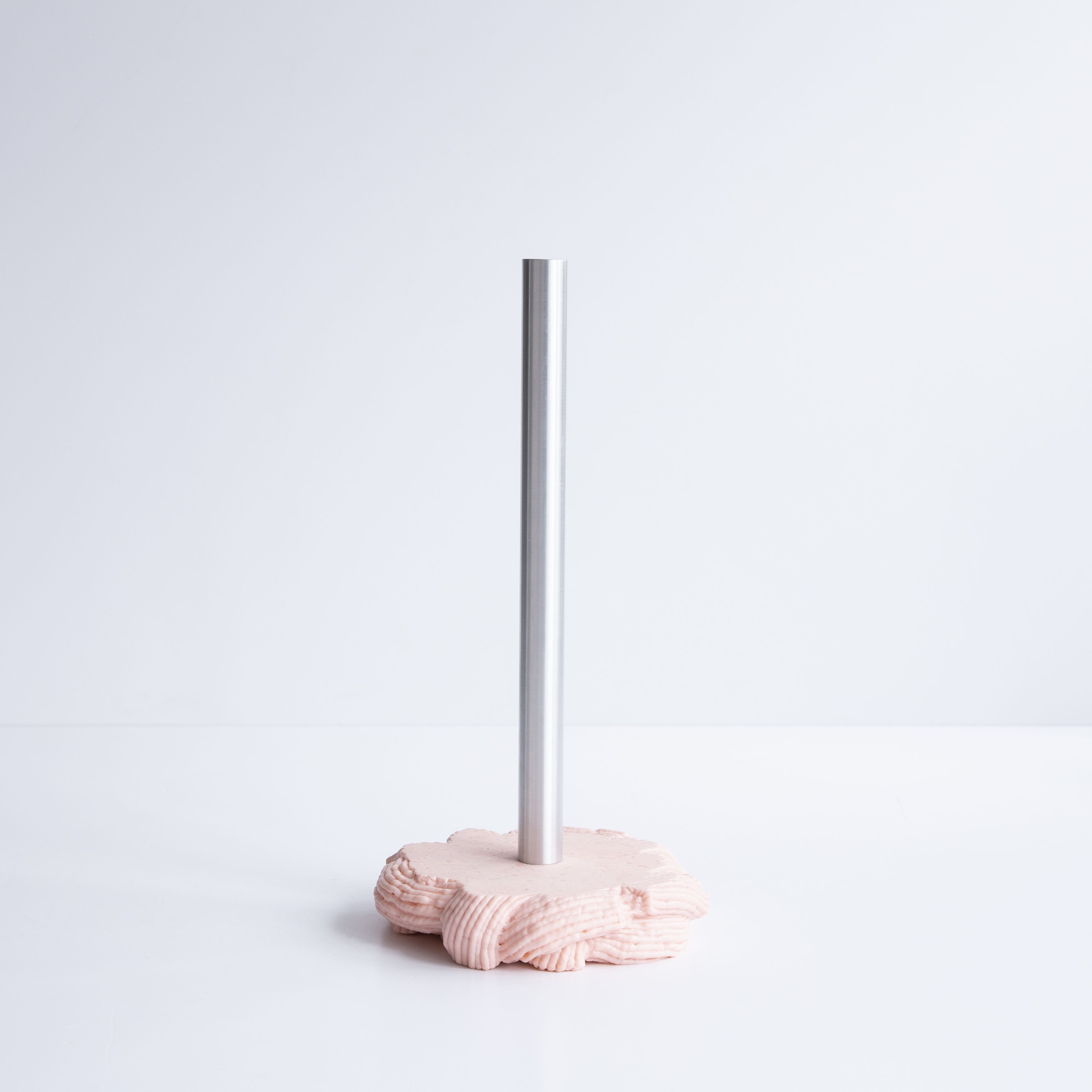
KOIBIRD Plastic Baroque Kitchen Roll Holder Pink, £200.
Image credit: Courtesy of James Shaw and KOIBIRD
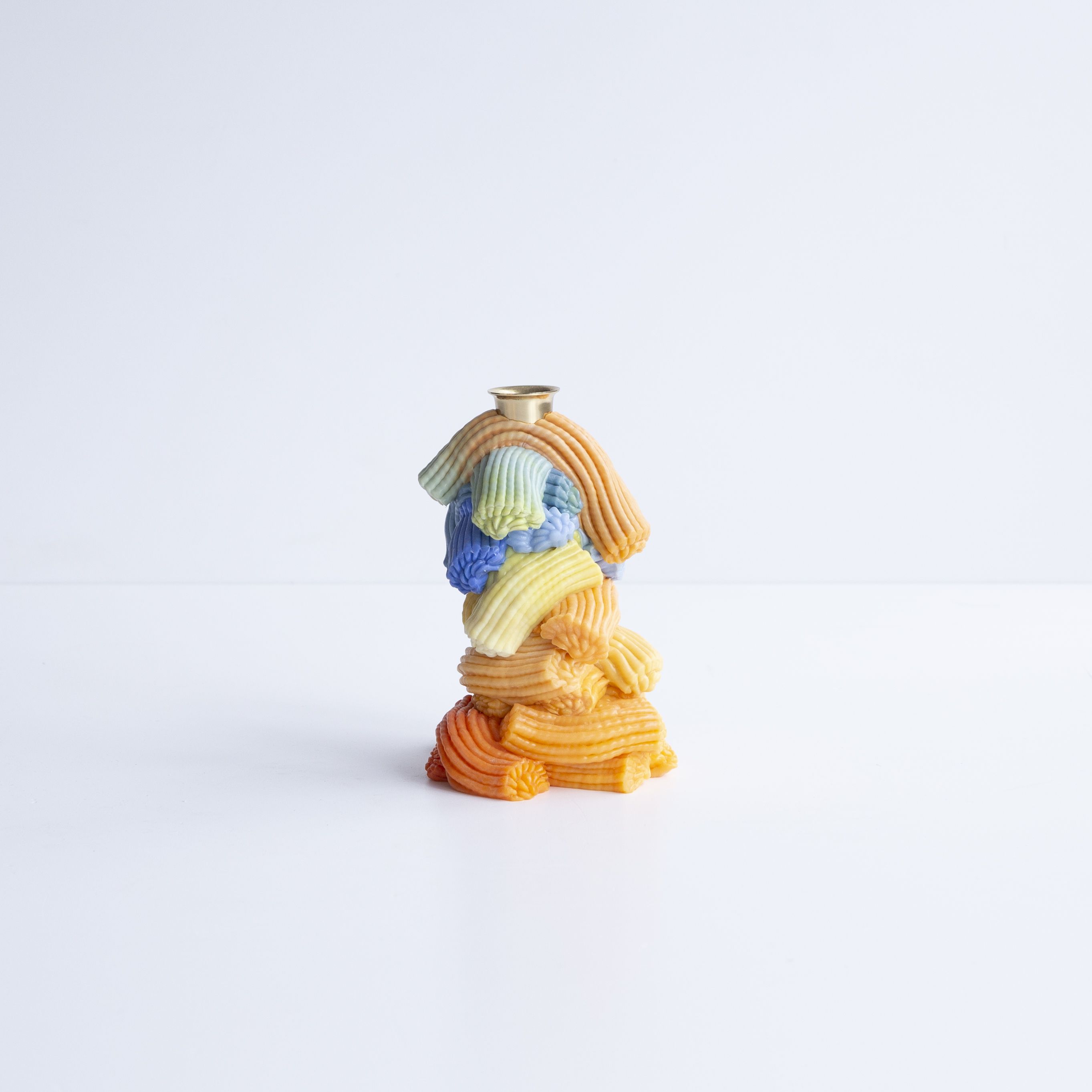
Plastic Baroque Candlestick Blue Orange, £95.
Image credit: Courtesy of James Shaw and KOIBIRD
The KOIBIRD drop sees Shaw venture into more uncharted territory than his usual, soothing pastels through strong reds and neon tones, which, the creative admits, he really loves.
"I am very interested in objects of daily use that can give us little moments of pleasure. Rituals like lighting a candle or cooking a meal are the moments that make up the texture of life, and it's this that I want to work with," he shares. One thing is for sure, his KOIBIRD home line won't go unobserved.
Discover the full collection in store at KOIBIRD.
Into the green furniture moment? Discover how Somerset-based house Somer is crafting circular furniture that is rehomed once you let it go. Or head to our design exhibitions directory for more sculptural inspiration.
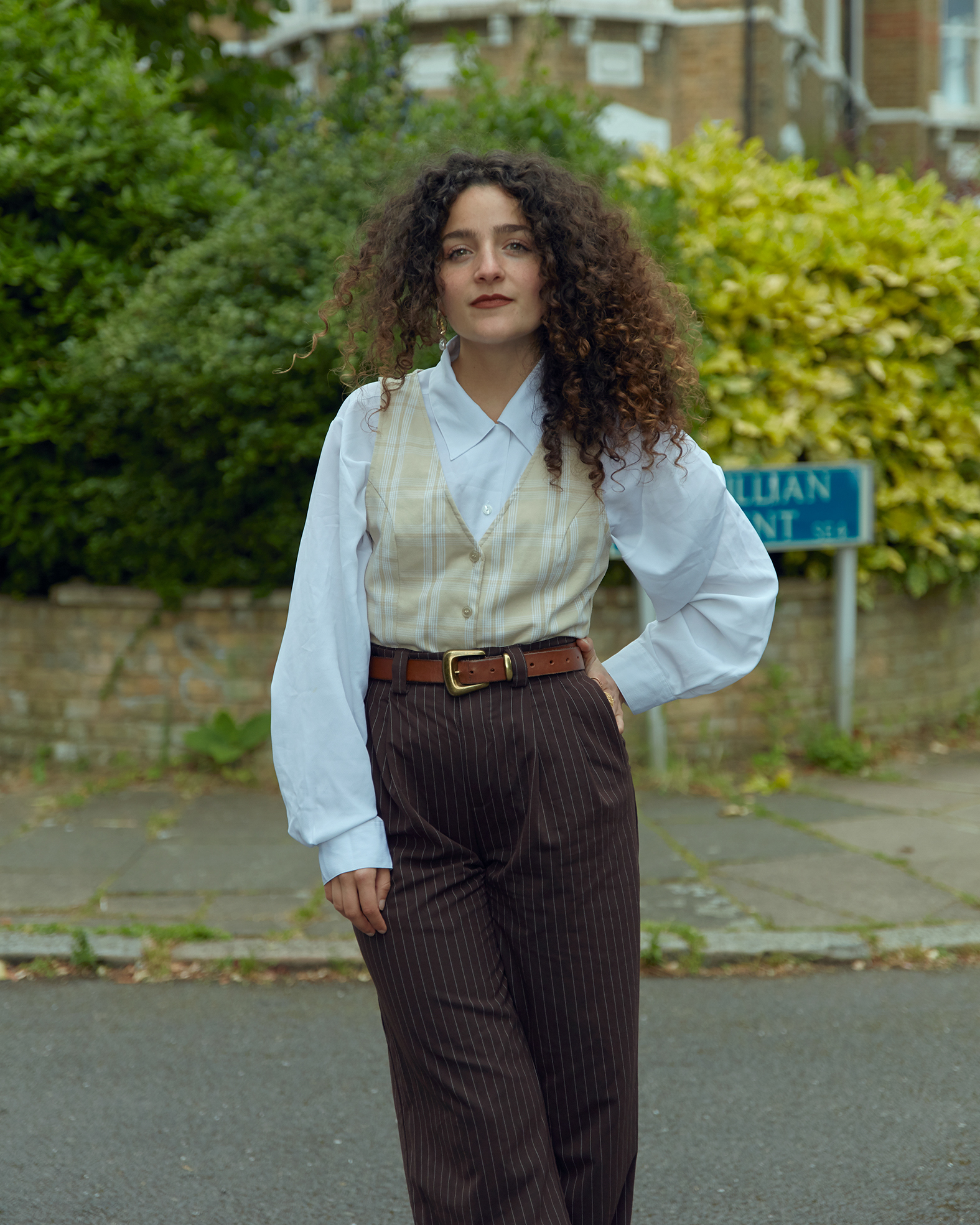
Gilda Bruno is Livingetc's Lifestyle Editor. Before joining the team, she worked as an Editorial Assistant on the print edition of AnOther Magazine and as a freelance Sub-Editor on the Life & Arts desk of the Financial Times. Between 2020 and today, Gilda's arts and culture writing has appeared in a number of books and publications including Apartamento’s Liguria: Recipes & Wanderings Along the Italian Riviera, Sam Wright’s debut monograph The City of the Sun, The British Journal of Photography, DAZED, Document Journal, Elephant, The Face, Family Style, Foam, Il Giornale dell’Arte, HUCK, Hunger, i-D, PAPER, Re-Edition, VICE, Vogue Italia, and WePresent.